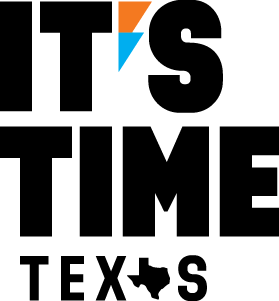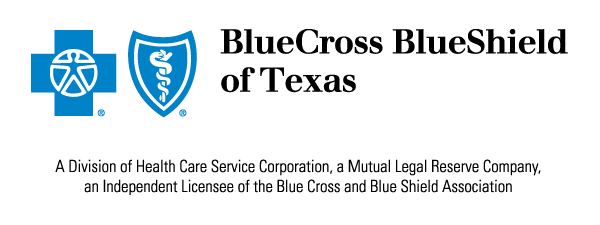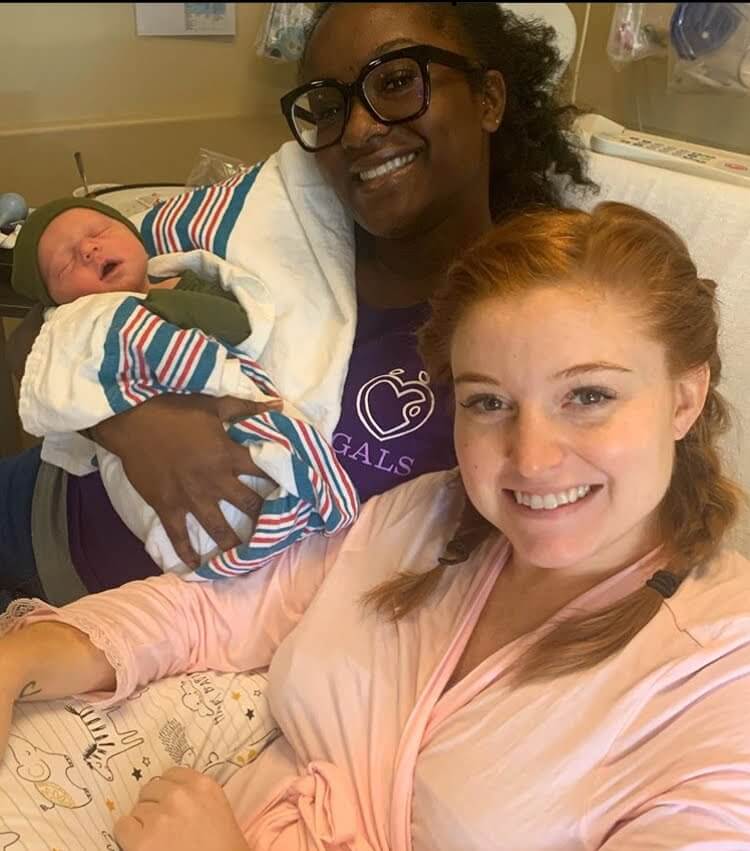Meet Giving Austin Labor Support (GALS):
Enhancing the Prenatal Doula Program by increasing prenatal and postpartum visits to aid the whole family.
Quick Facts:
- Since 2009, over 600 families have received support from GALS programs in Central Texas, spanning in an area as far north as Temple/Killeen and as far south as San Marcos, Texas.
- The Collaborative Innovations for Community Health funding will provide 40 families with a trained GALS Birthworker and supplies needed to support their family as they transition to life with a new baby.
- Services through GALS focuses on lowering cesarean rates, having babies at full-term gestation, and having healthy birth weights.
The Project
GALS is dedicated to providing emotional, physical, and informational support to birthing people and healthcare professionals who are under-supported in order to improve birth outcomes and strengthen families. GALS provides low-income and Black, Indigenous, and People of Color (BIPOC) families with wrap-around perinatal support through the following programs: On-call birth support for those actively in labor through postpartum, a full-spectrum Prenatal Doula Program, a pilot Postpartum Support Program, and Jail Support Program for those pregnant/postpartum at the Travis County Correctional Complex.
The funding from It’s Time Texas and Blue Cross and Blue Shield of Texas will enhance the work of the Prenatal Doula Program, expanding the comprehensive and wrap-around support through an increase in prenatal and postpartum visits to aid the whole family. This project will provide 40 families with a trained GALS Birthworker and supplies needed to support their family as they transition to life with a new baby. By expanding support for these families, GALS seeks to expand the impact through a multi-tiered, social determinants of health perspective, providing the luxury services and care that all parents deserve and creating true health equity through community engagement, health access, perinatal education, and sustainability of care for birthing people in Central Texas.
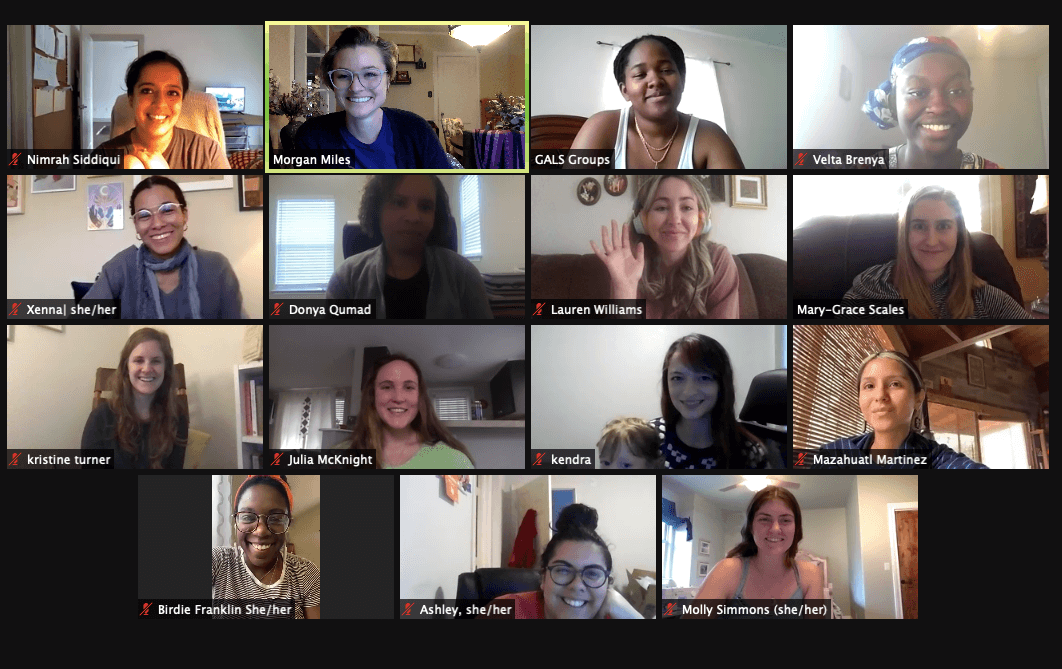
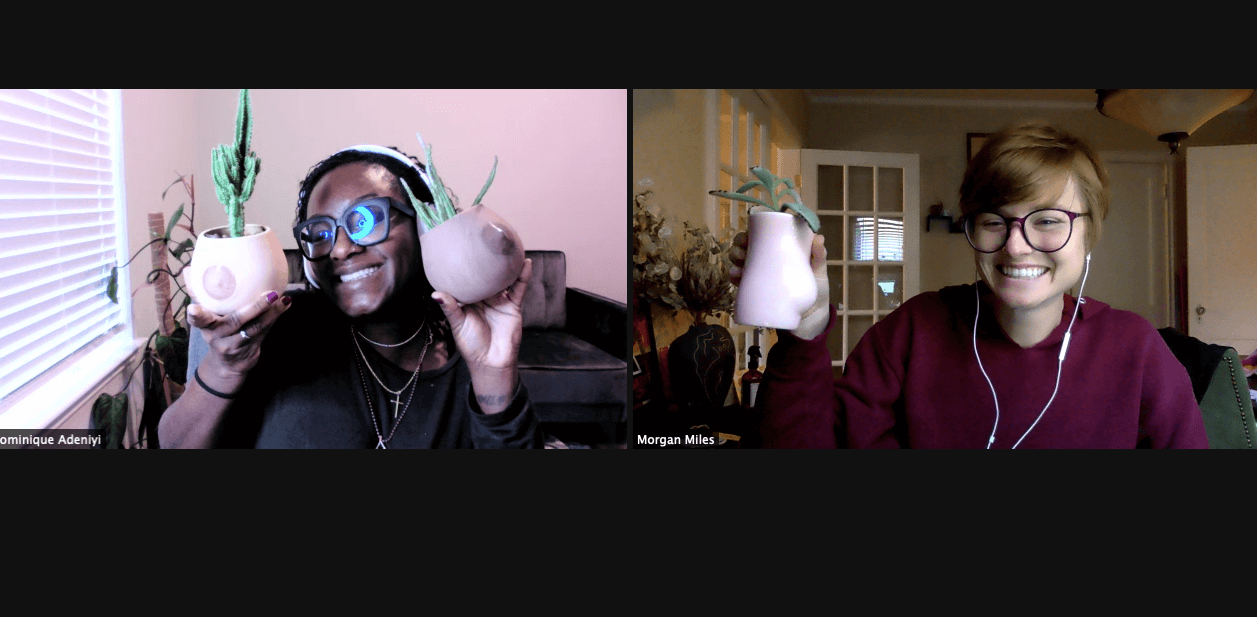
“GALS is honored to be a part of the Collaborative Innovations for Community Health. This funding allows GALS Birthworkers to provide crucial basic needs support impacting whole family systems, and allows us to increase the number of visits each family receives before and after birth—thus further improving birth outcomes from under-resourced Central Texans.”
– Dominique Adeniyi, Certified Doula – Birth Programs Coordinator of GALSThe Major Impact
GALS is dedicated to providing care that is both accessible and safe for all individuals within their community. Doulas are an evidence-based way to reduce birth and postpartum health inequities by improving access to healthcare, education, social support, and addressing systemic racism that affects outcomes for Black individuals. Through this funding, GALS will address the physical and emotional wellbeing of the birthing person, increase targeted perinatal education for them and their support network, and offer increased resources and connection. The impact on the parent-baby dyad has a generational effect that also impacts the community as a whole. This project will provide 40 families support and resources in accordance to what they need. For example, of the 69% of GALS families who identify as BIPOC, 38% speak Spanish—this investment allows the organization to provide a Spanish-speaking Doula and support for their specific cultural needs.
The Heart
An interview with:
An interview with Dominique Adeniyi, Certified Doula – Birth Programs Coordinator of GALSWhat are your hopes/wishes/wins that will bring joy to you at the close of this project? “Looking ahead, I hope that GALS makes an even greater impact on the communities that we are serving. I hope that we attract more birthworkers to fulfill the need. This project has allowed us to double our prenatal visits, so I find joy in knowing the success that will come from our birthworkers being able to spend more time with families.”
Why is community important to you and what do you love most about your community? “A community is what we naturally gravitate to as humans. We strive to belong to a community, because it’s where we find safety, validation, and purpose. The community I belong to is important because there is so much diversity and we can see the beauty of those differences and band together to provide resources and assistance to those who need it. Our community has a number of organizations that have similar goals in making birth and parenting resources easily accessible. I love the collaborative attitude where everyone works together for the greater good of the underserved community.”
What does health equity mean to you?“Health equity means everyone gets a fair shot at being the healthiest version of themselves. This is accomplished by removing all barriers that make this not easily accessible. Racism, discrimination, poverty, quality of housing, and education are all barriers that can work against health equity.”
“GALS is honored to be a part of the Collaborative Innovations for Community Health. This funding allows GALS Birthworkers to provide crucial basic needs support impacting whole family systems, and allows us to increase the number of visits each family receives before and after birth—thus further improving birth outcomes from under-resourced Central Texans.”
Grantee Story
Giving Austin Labor Support: Prenatal, Birth, and Post-Partum Support to Families in NeedMorgan Miles, an Executive Director at Giving Austin Labor Support (GALS), greets the It’s Time Texas team with a smile and a sleeping newborn on her lap. “You don’t wake a sleeping baby,” she says as she settles in for her interview.
Ms. Miles started as a volunteer for GALS in 2013, while attending the University of Texas School of Social Work. At GALS she learned all about what a doula was. “It was the first place that felt like home. I’ve been working for the organization ever since.”
Doula is a word of Greek origin, standing for “woman servant” or “women who serve”. Doulas practice in any setting that a family chooses, and are nonmedical support. Ms. Miles mentions there’s controversy surrounding the word ‘doula’, which is why a lot of organizations, like GALS, uses other terms such as “birth workers” or “labor companion”.
GALS has various programs and services, including a prenatal program, an on-call program, post-partum support program, and a jail support program. They collaborate with fellow Austin organizations and resources in order to cater to the needs of the families who are awaiting a newborn, giving birth, or are post-partum.
“Austin is really lucky to have three other community doula organizations. Places like Dallas and Houston don’t have organizations like us at all. So, we’re in this place where we really have a plethora of support and each of us are necessary to do this work.”
While collaborating with these organizations, Ms. Miles does think their Jail Support Program is what makes GALS unique. In fact, in 2021 the organization was able to provide one on one support for a family who was incarcerated. They were given prenatal visits, were supported during the birth, and were able to provide post-partum visits as well as some virtual support to their partner. “It was an amazing opportunity to provide that full-spectrum of care to that family, “she said.
The need for birthing support isn’t new, but GALS noticed that more and more families were asking for birth visits, and doulas were providing them that service without being reimbursed for this work. As COVID-19 struck, the number of families who needed birthing support increased, but the number of doulas and birth workers decreased, as they needed to find income and ways to support their own families.
“Originally, our prenatal program consisted of two prenatal visits, support during birth, and then one post-partum visit for each family. Thanks to the funding from It’s Time Texas and Blue Cross and Blue Shield of Texas, we now can do a ‘first needs assessment’, as well as four prenatal visits, birth support, and two post-partum visits.
The goals of the Healthy Kids, Healthy Families fund with Collaborative Innovations for Community Health, was to support 40 families, but GALS has well surpassed that goal, supporting 175 families total as of September 2021.
“This year, it’s looking like 60-percent of families are coming to us through the prenatal support program, and 40-percent through on-call. It used to be only on-call. So, I’m glad we’re able to fulfill that need of full-spectrum support,” said Ms. Miles.
While looking back on the year, Ms. Miles shared another victory during the project period of 2021. “We had another family who was a recent refugee, who’d immigrated here. She wasn’t feeling supported with her provider or very safe and comfortable. But she thought it was too late to change, and didn’t think she could find a better option so late in the pregnancy.”
But GALS was up to the challenge. Using their contacts, they were able to locate another provider, give her a birth in the setting she wanted, in the way her other children had been born, and even had a nurse in the hospital who spoke her native tongue.
“I love this work,” laughed Ms. Miles. “It was amazing to provide better care for her and her family. Having a safe, positive birth experience sets the family up for better success. The parents feel more confident in parenthood, in raising their child, so overall, it impacts that baby as much as it impacts them.”
Ms. Miles will continue to advocate for all families who want a birth worker or doula to be able to have one. Her goals are to share their stories, use data to better the birthing process and experience, and continue to do the work she loves—bringing life to this world in a positive manner.
